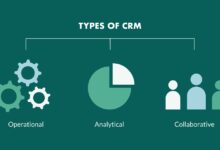Top Cloud-Based CRM Platforms: 7 Ultimate Power Tools for 2024
In today’s fast-paced digital world, the right CRM can make or break your customer relationships. Discover the top cloud-based CRM platforms that empower businesses to scale smarter, sell faster, and serve better—starting with the most powerful solutions on the market.
Top Cloud-Based CRM Platforms: Why They Dominate Modern Business

Cloud-based CRM systems have revolutionized how companies manage customer interactions, sales pipelines, and marketing campaigns. Unlike legacy on-premise software, these platforms offer unmatched flexibility, scalability, and real-time data access from anywhere in the world. The shift to cloud CRM has been accelerated by remote work trends, AI integration, and the growing need for seamless customer experiences.
According to Gartner, the global CRM market surpassed $80 billion in 2023, with cloud-based solutions accounting for over 85% of new deployments. This dominance is driven by lower upfront costs, faster implementation, and continuous updates delivered automatically by vendors.
Businesses of all sizes—from startups to Fortune 500 companies—are leveraging these platforms to centralize customer data, automate workflows, and gain actionable insights through analytics. The best cloud-based CRM platforms don’t just store contact information; they act as intelligent command centers for sales, service, marketing, and even HR functions.
What Makes a CRM ‘Cloud-Based’?
A cloud-based CRM is hosted on remote servers managed by the provider, accessible via the internet. Users log in through a web browser or mobile app, eliminating the need for local installations, hardware maintenance, or manual software updates.
- Hosted Infrastructure: Data is stored securely in the cloud, often across multiple redundant data centers.
- Subscription Model: Typically billed monthly or annually per user, reducing capital expenditure.
- Automatic Updates: Vendors push new features, security patches, and performance improvements without user intervention.
This model ensures that every team member, whether in the office or on the road, has access to the most up-to-date tools and information.
Key Advantages Over On-Premise CRM
While on-premise CRMs offer control over data and customization, they come with significant drawbacks that cloud platforms solve:
Lower Total Cost of Ownership (TCO): No need for dedicated IT staff, server rooms, or licensing fees.Faster Deployment: Most cloud CRMs can be up and running in days, not months.Scalability: Easily add or remove users as your business grows or contracts.Disaster Recovery: Built-in backups and failover systems protect against data loss.”The cloud has democratized access to enterprise-grade CRM tools.Small businesses can now compete with giants using the same technology.” — Forrester Research, 2023Top Cloud-Based CRM Platforms: The 7 Leading ContendersWith dozens of CRM options available, choosing the right one can be overwhelming..
To help you navigate, we’ve analyzed the top cloud-based CRM platforms based on market share, user satisfaction, feature depth, pricing, and innovation.These seven stand out as the most powerful and versatile solutions in 2024..
Top Cloud-Based CRM Platforms – Top Cloud-Based CRM Platforms menjadi aspek penting yang dibahas di sini.
Our evaluation includes Salesforce, HubSpot, Microsoft Dynamics 365, Zoho CRM, Pipedrive, Freshsales, and Oracle CX. Each platform serves different business needs, from all-in-one enterprise suites to lean, sales-focused tools. Let’s dive into what makes each one a leader in its category.
1. Salesforce: The Undisputed Leader
Salesforce remains the gold standard in cloud CRM, powering over 150,000 companies worldwide, including Amazon, Toyota, and Unilever. Its comprehensive ecosystem covers sales, service, marketing, commerce, and analytics—all integrated on a single platform.
Salesforce’s Einstein AI brings predictive analytics, automated lead scoring, and intelligent recommendations to every workflow. The AppExchange marketplace offers over 5,000 third-party integrations, making it infinitely customizable.
- Strengths: AI-powered insights, unmatched scalability, robust API, global support.
- Best For: Mid-sized to large enterprises with complex CRM needs.
- Pricing: Starts at $25/user/month (Essentials), up to $300+/user/month for Enterprise+.
While powerful, Salesforce can be complex to implement without expert guidance. However, its ROI over time justifies the investment for organizations serious about customer-centric growth.
2. HubSpot: The All-in-One Growth Platform
HubSpot has redefined CRM by making it free, intuitive, and deeply integrated with marketing, sales, and service tools. Its free CRM tier includes contact management, email tracking, deal pipelines, and live chat—making it ideal for startups and SMBs.
What sets HubSpot apart is its inbound methodology. The platform is designed to attract, engage, and delight customers through content, automation, and personalized experiences. Its CRM+ suite adds advanced features like workflows, reporting, and customer feedback tools.
- Strengths: User-friendly interface, free tier, seamless marketing integration, excellent onboarding.
- Best For: Small to mid-sized businesses focused on inbound marketing and sales alignment.
- Pricing: Free CRM; paid plans start at $45/month (Starter), up to $5,000+/month for Enterprise.
HubSpot’s ecosystem grows stronger every year, with AI tools like Content Assistant and Meeting Scheduler enhancing productivity.
3. Microsoft Dynamics 365: The Enterprise Powerhouse
For organizations already invested in the Microsoft ecosystem, Dynamics 365 offers a seamless blend of CRM and ERP capabilities. It integrates natively with Office 365, Teams, Power BI, and Azure, making it a natural fit for enterprise environments.
Dynamics 365 Sales, Customer Service, and Marketing modules are built on a unified data platform, enabling real-time insights across departments. Its AI capabilities, powered by Azure Cognitive Services, provide sales forecasting, sentiment analysis, and case classification.
Top Cloud-Based CRM Platforms – Top Cloud-Based CRM Platforms menjadi aspek penting yang dibahas di sini.
- Strengths: Deep Microsoft integration, strong security, hybrid deployment options, AI-driven insights.
- Best For: Large enterprises using Microsoft 365 and seeking end-to-end business process automation.
- Pricing: Starts at $65/user/month (Sales Professional), with custom enterprise pricing available.
While the learning curve is steeper than some competitors, the long-term benefits of a unified Microsoft stack are significant.
Top Cloud-Based CRM Platforms: Features That Define Excellence
Not all CRMs are created equal. The top cloud-based CRM platforms share a set of core features that enable businesses to operate efficiently and grow sustainably. These include automation, AI, integration capabilities, mobile access, and analytics. Let’s explore each in detail.
Automation: The Engine of Efficiency
One of the biggest advantages of modern CRM platforms is automation. Repetitive tasks like data entry, follow-up emails, task assignment, and lead routing can be automated, freeing up time for high-value activities.
- Workflow Automation: Trigger actions based on user behavior (e.g., send a welcome email when someone downloads a whitepaper).
- Lead Scoring: Automatically rank leads based on engagement, demographics, and behavior.
- Task Reminders: Notify sales reps when a follow-up is due or a deal stage changes.
For example, HubSpot’s automation workflows allow marketers to nurture leads across email, social, and ads without manual intervention. Salesforce’s Process Builder enables complex, multi-step automations with drag-and-drop simplicity.
Artificial Intelligence: Smarter Decisions, Faster
AI is no longer a luxury—it’s a necessity in top cloud-based CRM platforms. From predictive analytics to natural language processing, AI enhances every aspect of customer relationship management.
- Predictive Lead Scoring: AI analyzes historical data to predict which leads are most likely to convert.
- Chatbots: Provide instant customer support and qualify leads 24/7.
- Sales Forecasting: Uses machine learning to project revenue with high accuracy.
Salesforce Einstein, for instance, can suggest the best time to contact a lead, recommend next steps, and even draft email responses. Microsoft’s AI in Dynamics 365 helps customer service agents by summarizing case histories and suggesting solutions.
“AI in CRM isn’t about replacing humans—it’s about augmenting their capabilities to deliver better customer experiences.” — McKinsey & Company, 2024
Integration Capabilities: Connecting Your Tech Stack
No CRM operates in isolation. The best platforms offer seamless integration with email, calendars, marketing tools, e-commerce systems, and ERP software.
- Native Integrations: Built-in connections with tools like Gmail, Outlook, Slack, Shopify, and Zoom.
- API Access: Allows custom integrations with proprietary or niche applications.
- Marketplaces: Platforms like Salesforce AppExchange and HubSpot App Marketplace offer thousands of pre-built connectors.
Zoho CRM, for example, integrates with over 500 apps, including Mailchimp, QuickBooks, and Trello. Freshsales offers one-click integrations with Google Workspace and Microsoft 365, ensuring smooth data flow across systems.
Top Cloud-Based CRM Platforms: Scalability and Customization
A CRM must grow with your business. The top cloud-based CRM platforms offer exceptional scalability and customization, allowing organizations to adapt the system to their unique processes rather than the other way around.
Top Cloud-Based CRM Platforms – Top Cloud-Based CRM Platforms menjadi aspek penting yang dibahas di sini.
Scalability: From Startup to Enterprise
Scalability refers to a CRM’s ability to handle increasing amounts of data, users, and complexity without performance degradation. Cloud platforms excel here due to elastic infrastructure.
- User Management: Easily add or remove licenses as your team expands.
- Data Volume: Handle millions of contacts, deals, and interactions without slowdowns.
- Global Reach: Support multi-language, multi-currency, and regional compliance (e.g., GDPR, CCPA).
Salesforce and Microsoft Dynamics 365 are particularly strong in this area, supporting global enterprises with distributed teams. Pipedrive, while simpler, scales well for growing sales teams with straightforward pipelines.
Customization: Tailoring the CRM to Your Workflow
Every business has unique processes. The best CRMs allow deep customization of fields, layouts, pipelines, reports, and dashboards.
- Custom Objects: Create new data types (e.g., ‘Project’, ‘Contract’) beyond standard contacts and deals.
- Workflow Rules: Define conditional logic for automation and notifications.
- UI Customization: Modify the look and feel, menu structures, and user permissions.
For instance, Zoho CRM allows users to build custom modules and workflows using its Blueprint feature. HubSpot’s custom objects let businesses track entities like ‘Events’ or ‘Subscriptions’ alongside traditional CRM data.
Top Cloud-Based CRM Platforms: Pricing and ROI Analysis
Cost is a critical factor when selecting a CRM. While some platforms offer free tiers, others require significant investment. Understanding the total cost of ownership (TCO) and return on investment (ROI) is essential.
Comparative Pricing Models
Most top cloud-based CRM platforms use a per-user, per-month subscription model. However, pricing structures vary widely:
- Salesforce: $25–$300+/user/month depending on edition and add-ons.
- HubSpot: Free CRM; paid plans from $45/month (billed annually).
- Dynamics 365: $65–$225/user/month for core CRM modules.
- Zoho CRM: Free for up to 3 users; paid plans from $14/user/month.
- Pipedrive: Starts at $14.90/user/month.
- Freshsales: Free for up to 3 users; paid from $15/user/month.
- Oracle CX: Custom pricing, typically $100+/user/month.
Hidden costs can include implementation, training, data migration, and premium support. Salesforce, for example, often requires third-party consultants for setup, adding thousands to initial costs.
Measuring ROI: Beyond the Price Tag
ROI from a CRM comes in many forms:
- Sales Productivity: Shorter sales cycles, higher win rates.
- Customer Retention: Improved service leads to higher lifetime value.
- Marketing Efficiency: Better lead nurturing reduces cost per acquisition.
A Nucleus Research study found that the average ROI for CRM systems is $8.71 for every $1 spent, with cloud CRMs delivering faster payback than on-premise solutions.
Top Cloud-Based CRM Platforms – Top Cloud-Based CRM Platforms menjadi aspek penting yang dibahas di sini.
“Companies using CRM see a 29% increase in sales performance and a 34% improvement in customer satisfaction.” — Nucleus Research, 2023
Top Cloud-Based CRM Platforms: Security and Compliance
With customer data at stake, security is non-negotiable. The top cloud-based CRM platforms invest heavily in data protection, encryption, and regulatory compliance.
Data Security Measures
Leading CRMs employ multiple layers of security:
- Encryption: Data encrypted at rest and in transit (TLS 1.2+).
- Authentication: Multi-factor authentication (MFA) and single sign-on (SSO) support.
- Access Controls: Role-based permissions to limit data visibility.
- Auditing: Log tracking for user activity and changes.
Salesforce, for example, complies with ISO 27001, SOC 1/2/3, and GDPR. Microsoft Dynamics 365 leverages Azure’s advanced threat detection and compliance certifications.
Regulatory Compliance
Global businesses must adhere to strict data privacy laws:
- GDPR (EU): Right to access, delete, and port data.
- CCPA (California): Consumer privacy rights.
- HIPAA (Healthcare): Required for medical CRM use cases.
Most top platforms offer built-in tools to manage consent, data retention, and breach notifications. HubSpot, for instance, provides a Data Privacy Hub to help users comply with GDPR requests.
Top Cloud-Based CRM Platforms: User Experience and Adoption
A powerful CRM is useless if employees don’t use it. User experience (UX) and adoption rates are critical success factors. The best platforms prioritize simplicity, mobile access, and intuitive design.
Intuitive Interface Design
Modern CRMs use clean, dashboard-driven interfaces that reduce training time:
- Drag-and-Drop Builders: For pipelines, workflows, and reports.
- Custom Dashboards: Real-time KPIs and performance metrics.
- Contextual Help: In-app guidance and tooltips.
Pipedrive excels here with its visual sales pipeline, making it easy for reps to track deals. Freshsales offers a smart contact timeline that consolidates all interactions in one view.
Mobile CRM Capabilities
Sales and service teams need CRM access on the go. All top cloud-based CRM platforms offer robust mobile apps:
Top Cloud-Based CRM Platforms – Top Cloud-Based CRM Platforms menjadi aspek penting yang dibahas di sini.
- Offline Access: View and edit data without internet.
- Mobile-Specific Features: Voice-to-text notes, GPS check-ins, mobile calling.
- Push Notifications: Alerts for new leads, task deadlines, or deal updates.
Salesforce’s mobile app includes Einstein Voice Assistant, allowing users to log calls and create tasks by speaking. HubSpot’s mobile app supports live chat, email tracking, and deal updates from any device.
Top Cloud-Based CRM Platforms: Future Trends and Innovations
The CRM landscape is evolving rapidly. The top cloud-based CRM platforms are not just keeping pace—they’re leading the charge in innovation.
AI and Predictive Analytics
AI will become even more embedded in CRM workflows. Expect:
- Hyper-Personalization: AI-driven content and offers tailored to individual customer behavior.
- Next-Best-Action Recommendations: Real-time suggestions for sales and service teams.
- Sentiment Analysis: Detect customer emotions from emails, calls, and chats.
Salesforce is already testing generative AI for drafting sales emails and service responses. Microsoft is integrating Copilot into Dynamics 365 for natural language queries and report generation.
No-Code and Low-Code Development
Business users are increasingly building custom CRM solutions without coding. Platforms like Zoho Creator and Salesforce Lightning App Builder empower non-developers to create apps, forms, and workflows.
- Drag-and-Drop Interfaces: Build custom modules and automation.
- Pre-Built Templates: Accelerate development for common use cases.
- Integration with Citizen Development: IT oversight with business agility.
This trend democratizes innovation, allowing departments to solve problems without waiting for IT.
Vertical-Specific CRM Solutions
Generic CRMs are giving way to industry-tailored solutions. The top cloud-based CRM platforms now offer specialized editions for:
- Healthcare: Patient relationship management with HIPAA compliance.
- Real Estate: Property tracking, lead nurturing, and transaction management.
- Education: Student lifecycle management and alumni engagement.
- Retail: Omnichannel customer profiles and loyalty programs.
Oracle CX, for example, offers deep retail and hospitality solutions, while Salesforce Health Cloud serves medical providers with care coordination tools.
What is the best cloud-based CRM for small businesses?
Top Cloud-Based CRM Platforms – Top Cloud-Based CRM Platforms menjadi aspek penting yang dibahas di sini.
For small businesses, HubSpot CRM is often the best choice due to its free tier, ease of use, and integrated marketing tools. Zoho CRM and Freshsales are also excellent options, offering robust features at affordable prices. These platforms require minimal setup and provide strong automation and reporting capabilities tailored to growing teams.
Which CRM is the most user-friendly?
Pipedrive and HubSpot are widely regarded as the most user-friendly CRMs. Pipedrive’s visual sales pipeline makes it intuitive for sales teams, while HubSpot’s clean interface and in-app guidance reduce the learning curve. Both platforms emphasize simplicity without sacrificing functionality.
Can cloud CRM systems be customized?
Yes, the top cloud-based CRM platforms offer extensive customization options. Users can modify fields, layouts, workflows, and dashboards. Advanced platforms like Salesforce and Microsoft Dynamics 365 support custom objects, code-level integrations, and no-code app builders, allowing businesses to tailor the system to their unique processes.
How secure are cloud-based CRM platforms?
Top cloud-based CRM platforms are highly secure, using encryption, multi-factor authentication, and compliance with international standards like GDPR and SOC 2. Providers invest heavily in cybersecurity, often offering better protection than on-premise systems managed by internal IT teams.
Do cloud CRMs work offline?
Many cloud CRM platforms offer offline functionality through mobile apps. Users can view and edit records without an internet connection, with changes syncing automatically once back online. Salesforce, HubSpot, and Zoho CRM all support offline access for field sales and service teams.
Top Cloud-Based CRM Platforms – Top Cloud-Based CRM Platforms menjadi aspek penting yang dibahas di sini.
Choosing the right CRM is one of the most impactful decisions a business can make. The top cloud-based CRM platforms—Salesforce, HubSpot, Microsoft Dynamics 365, Zoho CRM, Pipedrive, Freshsales, and Oracle CX—offer powerful tools to manage customer relationships, automate workflows, and drive growth. While each has its strengths, the best choice depends on your business size, industry, budget, and technical needs. By prioritizing features like AI, integration, scalability, and user experience, you can select a platform that not only meets today’s demands but also evolves with your future goals. In an era where customer experience is the ultimate competitive advantage, investing in a world-class cloud CRM isn’t just smart—it’s essential.
Further Reading:


